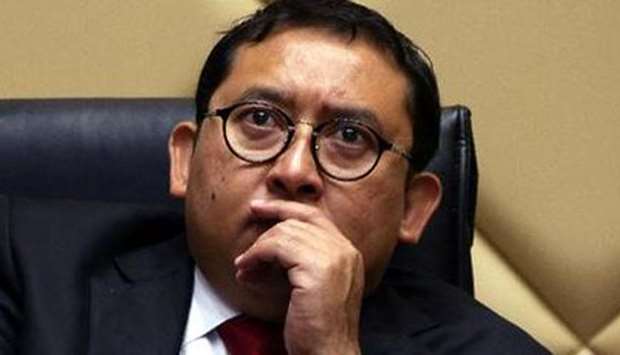HE the Chairman of Global Organisation of Parliamentarians Against Corruption (GOPAC) Dr Fadli Zon affirmed that the 7th Global Conference of Parliamentarians Against Corruption, a joint initiative of the Shura Council and GOPAC, is an important platform for exchanging experiences, knowledge and lessons learned for local parliaments in confronting corruption, and that its discussions will strengthen and expand the network of parliamentarians against corruption around the world.
In an interview with the Qatari newspaper Al-Raya issued Monday, Dr Fadli Zon noted that the conference coincided with the announcement of the winners of His Highness the Amir Sheikh Tamim bin Hamad Al-Thani's International Anti-Corruption Excellence Award in the Rwandan capital Kigali today. He considered the award a as strong and united message against corruption and encourages commitment to the values of integrity, transparency and accountability, especially for parliamentarians.
GOPAC includes parliamentarians and heads of parliaments from 106 countries, and it has 63 national branches around the world, he said, adding that it is the only parliamentary network interested in anti-corruption work and efforts of parliamentarians against corruption around the world, and has become a very important organisation.
GOPAC Chairman expressed certainty that with this Conference, the international partnership in the fight against corruption will be strengthened.
Dr Fadli Zon pointed out that GOPAC is an observer member of the Inter-Parliamentary Union (IPU), and it is scheduled that the IPU President Gabriela Cuevas Barron to join Doha's conference, expressing his hope for the conference to achieve fruitful results that enhance the efforts of the Parliamentarians Network in preventing and combating corruption.
He underlined that the most important challenges facing anti-corruption efforts are time, good preparation and initiatives necessary to create networks of communication with other organisations, noting that there is a wide range of relationships with some organisations, which is very important as fighting corruption is a battle of all and must be combated at all levels and by all elements of society, and not only by the executive officials or anti-corruption committees and bodies. It also comprehensive for all the executive, legislative and judicial aspects, and each of them has an important role in fighting corruption, he added.
‘We aim to reach more parliamentarians around the world and more countries. Currently, we have members from more than 60 branches in five regional areas, most of them are active in promoting anti-corruption, and we hope to boost this number to more than 100 countries in addition to more parliamentarians, because this organisation is not only for current parliamentarians but also for former parliamentarians’, he said.
In terms of benefiting from the Doha conference in exchanging parliamentarians' experiences in fighting corruption, HE Dr Fadli Zon stressed that many lessons can be learned from other countries and regions during the discussions in the Doha conference because it is an important platform and a good opportunity to exchange experiences and information and form networks to develop legislation and law enforcement mechanisms and regulate applicable international standards to enhance international cooperation in combating corruption.
There are five regional areas that have anti-corruption organisations in Africa, the Arab world, Southeast Asia, Latin America and the Pacific that include parliamentarians against corruption, he said, pointing out that two regional organisations are being registered for anti-corruption parliamentarians.
Regarding the next steps after the Doha conference, HE Dr Fadli Zon said that they will work to strengthen the network of parliamentarians against corruption, because parliamentarians have a significant and important legislative role in facing corruption and addressing it. Also, alongside parliamentarians, there are authorities the implement legislation, affirming support for the United Nations efforts in fighting corruption.
The Chairman of Global Organisation of Parliamentarians Against Corruption told Al-Raya that Qatar is the United Nations partner in supporting these efforts through cooperation with the United Nations Development Program, as it provided strong support for the anti-corruption project, adding ‘even in our countries we can set laws and regulations that serve the goal of combating corruption in accordance with the relevant resolutions of the United Nations, as well as strengthening the relationship between local efforts of parliamentarians and making greater use of them in joint international cooperation to enhance efforts of anti-corruption and prevention.’ (QNA)

